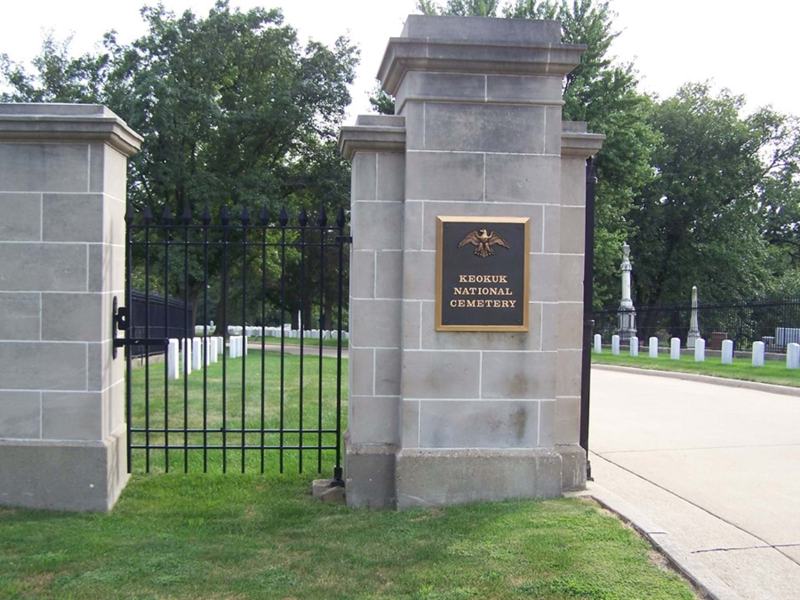Gate City Keokuk Iowa obituaries offer a unique lens through which to explore the rich history of this Mississippi River town. More than simple death notices, these records provide invaluable insights into the lives, professions, and family structures of Keokuk’s residents across generations. By examining these obituaries, we can trace the city’s evolution, from its early industrial boom to its present day, and gain a deeper appreciation for the individuals who shaped its identity.
This exploration delves into the historical context of Keokuk, highlighting the significance of the Mississippi River in its development and the impact of its major industries on the community. We will analyze obituary data to uncover trends in causes of death, occupations, and family names over time, revealing societal shifts and cultural changes. Finally, we’ll profile notable Keokuk figures whose lives are documented in these historical records, offering a glimpse into their contributions and legacies.
Understanding Gate City’s History
Keokuk, Iowa, nestled on the banks of the mighty Mississippi River, boasts a rich and multifaceted history. Its nickname, “Gate City,” reflects its strategic location as a crucial river port and gateway to the West. This history is intrinsically linked to the river’s influence, shaping its industries, population, and overall development.
Keokuk’s Development and the Mississippi River
The Mississippi River has been the lifeblood of Keokuk since its earliest days. Its powerful currents provided transportation for goods and people, fueling the city’s growth as a vital trading center. The river’s accessibility facilitated the development of industries reliant on water transport, shaping the city’s economic landscape and attracting a diverse workforce.
Keokuk’s Major Industries and Population Impact
Throughout its history, Keokuk’s economy has been driven by various industries. Early industries included lumber, lead mining, and riverboat traffic. Later, the development of hydroelectric power significantly impacted the city’s industrial profile, attracting new businesses and contributing to periods of population growth. The decline of some industries, however, has also led to periods of economic hardship and population shifts.
Keokuk’s Historical Timeline
A concise timeline helps illustrate the key periods of growth and decline in Keokuk’s history. This timeline highlights significant events that shaped the city’s identity and influenced the lives of its residents as reflected in its obituaries.
| Date | Event | Impact |
|---|---|---|
| Early 1800s | Establishment of Keokuk as a trading post | Beginnings of river trade and settlement |
| Mid-1800s | Growth of lumber and lead industries | Significant population increase |
| Late 1800s – Early 1900s | Development of hydroelectric power | Industrial diversification and further growth |
| Mid-1900s – Present | Decline of some industries, economic diversification efforts | Population shifts and ongoing adaptation |
Obituaries as Historical Records
Keokuk obituaries serve as invaluable primary source documents for understanding the city’s past. They provide intimate glimpses into the lives of ordinary citizens, offering a rich tapestry of social, economic, and familial details that illuminate the broader historical context.
Obituaries as Reflections of Societal Change
Obituaries act as a mirror reflecting societal changes and cultural norms over time. The language used, the information included, and even the causes of death mentioned often reveal shifts in values, beliefs, and social structures. Analyzing these patterns across different eras provides valuable insights into Keokuk’s evolving cultural landscape.
Information Commonly Found in Keokuk Obituaries
Keokuk obituaries typically include a range of information, offering a detailed snapshot of the deceased’s life. This data offers valuable insights into the lives and times of Keokuk residents.
| Information Type | Historical Relevance | Example |
|---|---|---|
| Name, Birthdate, Death Date | Basic biographical data, essential for genealogical research | John Smith, born 1880, died 1950 |
| Occupation | Reflects economic trends and social mobility | Farmer, Teacher, Factory Worker |
| Family Details (Spouse, Children) | Reveals family structures and kinship networks | Married to Mary Smith, father of three |
| Cause of Death | Indicates prevalent health issues and mortality rates | Heart failure, Pneumonia, Accident |
Analyzing Keokuk Obituary Data
A systematic analysis of Keokuk obituary data reveals compelling trends across different time periods. By examining common causes of death, prevalent occupations, and recurring family names, we can gain a deeper understanding of the city’s demographic shifts, economic changes, and social structures.
Common Causes of Death Across Time Periods
Analyzing causes of death reveals shifts in public health and medical advancements. For instance, infectious diseases might be prevalent in earlier obituaries, while chronic diseases might dominate later ones. This analysis helps paint a picture of evolving health challenges faced by Keokuk residents across generations.
Occupational Changes Across Eras

Source: tripvac.com
The occupations listed in obituaries reflect the changing economic landscape of Keokuk. The prevalence of agricultural occupations in earlier periods, followed by the rise of industrial jobs and later, service sector positions, illustrates the city’s economic transformation.
Prevalence of Certain Family Names
Examining the frequency of certain family names in Keokuk obituaries can highlight long-standing community ties and patterns of settlement and migration. This data offers insights into the city’s social fabric and the enduring presence of certain families throughout its history.
Evolution of Obituary Language and Style
The language and style of obituaries have evolved significantly over time. Earlier obituaries might employ more formal and religious language, while later ones might adopt a more personal and informal tone. These stylistic changes reflect broader shifts in cultural norms and communication styles.
Illustrating Notable Keokuk Figures: Gate City Keokuk Iowa Obituaries
Keokuk’s history is enriched by the contributions of numerous notable individuals. Their obituaries offer valuable biographical information and insights into their impact on the community. Examining these narratives helps bring the past to life and understand the legacy of these significant figures.
Biographical Sketches of Prominent Individuals
Three examples of prominent Keokuk figures whose obituaries provide rich biographical details would illustrate the diversity of contributions made to the city. Each narrative should delve into their life achievements and community impact.
Example 1: [Name of Individual] – A description of their life and contributions, referencing specific details from their obituary, could focus on their career in [profession], their involvement in [community organization], and their lasting legacy in [area of impact].
Example 2: [Name of Individual] – A similar detailed description of another notable figure, showcasing their contributions and impact. This could highlight their work in [field], their role in [historical event], and their influence on [aspect of Keokuk society].
Example 3: [Name of Individual] – A detailed biographical sketch of a third notable figure, highlighting their unique contributions and lasting impact on Keokuk’s history. This could focus on their entrepreneurial efforts, philanthropic activities, or contributions to the arts.
Impact of a Specific Event or Era
A specific event or era, such as the Great Depression or the industrial boom, significantly shaped the lives of many individuals documented in Keokuk obituaries. Examining how this event influenced their lives provides a microcosm of the broader historical impact.
Finding obituaries for Gate City, Keokuk, Iowa can sometimes require navigating multiple sources. The process of arranging final services, however, is often made easier by reputable funeral homes like the anderson funeral home dahlonega ga , which offers comprehensive support to grieving families. Returning to Keokuk, local newspapers and online obituary sites are typically the best starting points for locating the information you need.
Visual Representation of a Historical Photograph, Gate city keokuk iowa obituaries
Imagine a photograph depicting [Name of Notable Figure] standing in front of [location]. They are dressed in [description of clothing], their facial expression is [description of expression], and the overall setting conveys a sense of [mood or atmosphere]. This visual representation helps us connect with the past on a personal level.
Legacy of a Significant Family
Certain families have left an indelible mark on Keokuk’s history, their contributions spanning generations. Examining the obituaries of members of this family reveals the collective impact of their combined efforts on the community. This could focus on their involvement in business, philanthropy, or civic life.
Exploring Local Resources
Several local archives and historical societies in Keokuk preserve obituary records, offering valuable resources for genealogical research and historical study. Accessing these records can be done through various methods, including online databases and physical archives.
List of Local Archives and Historical Societies
- [Name of Archive/Society 1]: [Contact Information], [Website Address (if available)]
- [Name of Archive/Society 2]: [Contact Information], [Website Address (if available)]
- [Name of Archive/Society 3]: [Contact Information], [Website Address (if available)]
Methods for Accessing Records
Accessing these records may involve visiting physical archives, utilizing online databases, or contacting the respective institutions directly. Some institutions may offer assistance with research inquiries.
Digitization Projects
Information on any ongoing digitization projects related to Keokuk obituaries should be included here, detailing the scope of the project and how to access the digitized records.
Last Word
The obituaries of Gate City Keokuk, Iowa, serve as a powerful testament to the lives lived and the history forged within this vibrant community. By examining these records, we not only honor the memory of those who have passed but also gain a richer understanding of Keokuk’s past, present, and future. The stories contained within these simple announcements paint a vivid portrait of a town shaped by the Mississippi River and the resilience of its people.
The legacy of Keokuk is preserved, not just in stone and steel, but also in the words that chronicle the lives of its citizens.




